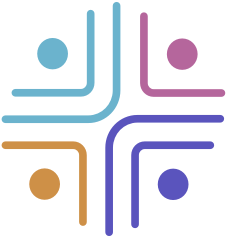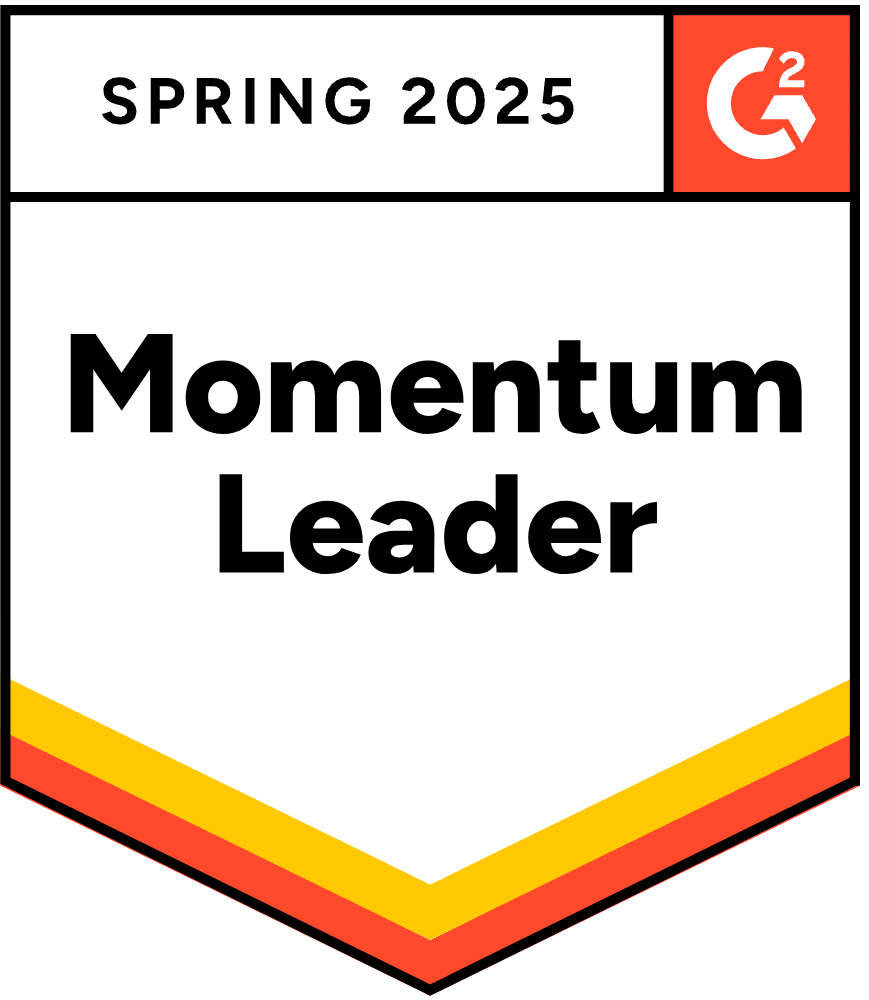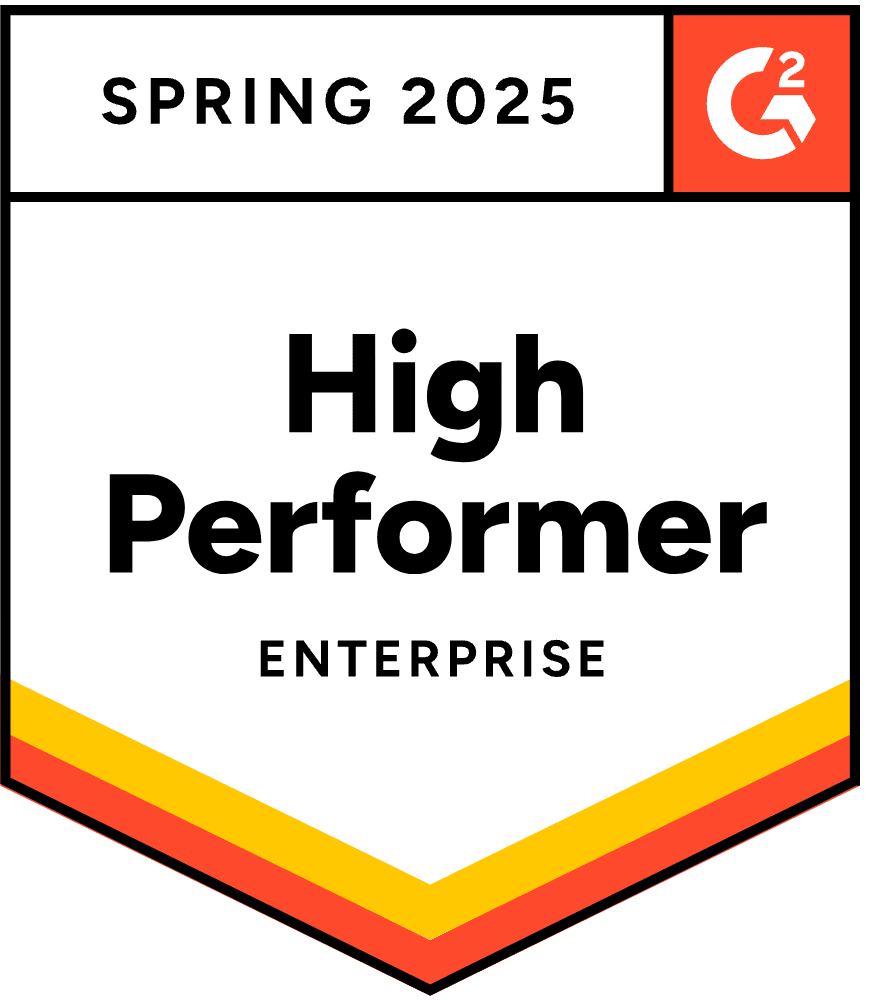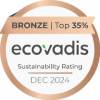To help you understand the art of interviewing, we’ve gathered twelve insightful responses from experienced interviewers, including CEOs and Human Resources Directors. Their go-to questions range from asking about the biggest professional failure to surprising with a lottery winning scenario, providing a comprehensive guide on how to assess an applicant’s adaptability during an interview.
- Asking About the Biggest Professional Failure
- Modifying the Greatest Weakness Question
- Questioning How a Candidate Can Help Company Grow
- Inquiring About Industry Frustrations
- Using a Series of Questions to Test Adaptability
- Asking for an Autobiography Title
- Following-Up to Past-Oriented Question
- Presenting an Unexpected Scenario Challenge
- Questioning Adaptability to Unexpected Changes
- Handling Situations Without Leadership
- Asking About a Desired Superpower
- Surprising with a Lottery Winning Scenario<
Asking About the Biggest Professional Failure
One question that I always ask candidates during interviews is, “What is your biggest professional failure, and why did it happen?” I love asking this question for multiple reasons.
First, candidates are accustomed to talking about their successes, so this question typically catches them off guard and makes them quickly think on their feet about how to positively speak about one of their failures. Second, and perhaps more importantly, I like to see whether the candidate takes responsibility for the failure or shifts blame to others.
The answer to the question can be very telling on whether the individual will be an accountable team player.
Janelle Owens, Human Resources Director, Guide2Fluency
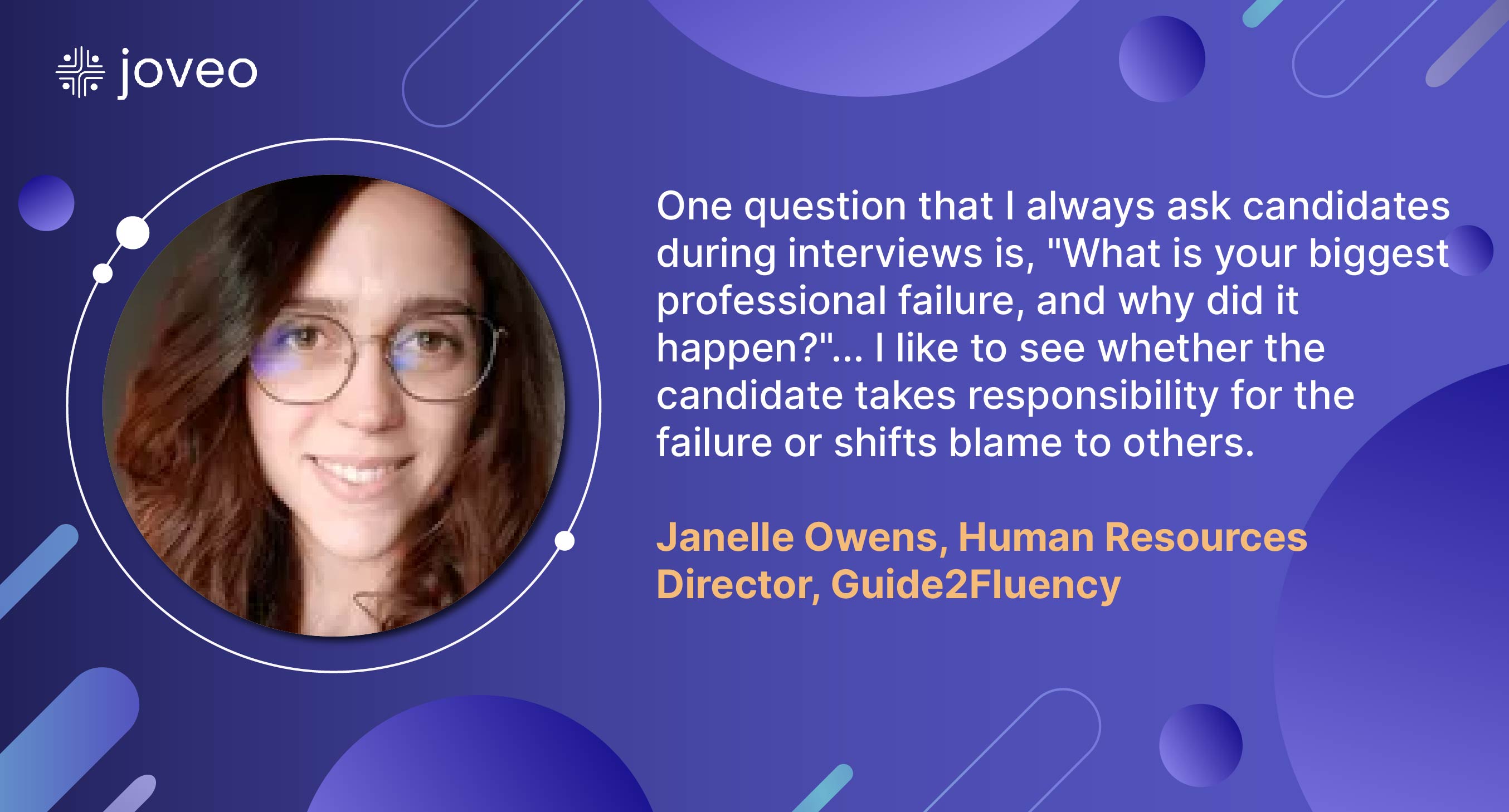
Modifying the Greatest Weakness Question
Adding a small tweak to the question of “What’s your greatest weakness?” can foster more genuine results. Instead, ask, “What was the most recent critical feedback you’ve been given?”
This often removes the standard, pre-thought answer and yields a more recent, and genuine result that has some validity to what they are working on improving today. It’s important to understand where the feedback came from.
Was it during a performance review, or was it solicited by the candidate? Are they always looking to grow and learn and seeking regular feedback? On the other side of it, it’s interesting to know if they agreed with the feedback and how they adapted and moved forward with that additional insight.
This slight change helps steer away from the “I need to learn how to delegate more” or “I need to learn how to have a better work-life balance” and gets them thinking on their feet.
Zak Michalyshyn, Senior Talent Acquisition Lead, knak.com
Questioning How a Candidate Can Help the Company Grow
My go-to question is, “How can you help the company grow?” This is a very simple question, but it will clearly show how nimble the applicant is on their feet.
If they come in prepared and they are quick to think, they can easily integrate their skills as well as the company’s core values and goals together to provide an appropriate answer. Otherwise, their answer will just beat around the bush and won’t be able to clearly state what they can share with the company.
Steven Mostyn, Chief Human Resources Officer, Management.org
Inquiring About Industry Frustrations
One practice question I’ve been using a lot lately is: “What frustrates you most about this industry?” It’s a bit of a trick question because there is no right or wrong response, but workers who are truly invested in the sector never struggle to come up with something on the spot.
Thinking quickly on your feet requires a deep interest in more than your specific role. You need to understand the ins and outs of the broader field, and that means knowing its pitfalls as well as its successes. Fast-thinking applicants will have an answer ready to go because they already live and breathe the topic.
Linn Atiyeh, CEO, Bemana
Using a Series of Questions to Test Adaptability
To gauge a candidate’s ability to think on their feet during an interview, I always inquire about a time when they had to adjust to a challenging new environment, extracting valuable lessons that impacted their professional and personal growth. This question helps to uncover their level of adaptability.
Additionally, I delve into how they would approach unfamiliar projects or systems, assessing their problem-solving skills. I also explore their response to unexpected hiccups, like technical glitches during presentations, gauging their composure and engagement tactics.
Lastly, I’m curious about their skill in delivering unfavorable news to stakeholders—how they navigate challenging conversations and manage expectations. These questions, asked with a mix of professionalism and insight, help reveal their ability to handle uncertainties, making them a seamless fit for our FinTech landscape.
Brendan Bray, Team Manager, EC1 Partners
Asking for an Autobiography Title
My go-to question has always been, “What would the title of your autobiography be?” This allows for the candidate to not only tell me about who they are as a person but also to showcase anything including their interests, skills, sense of humor, or anything else they want professionally that can lead the conversation in a new direction.
I use this question to see if I’ve missed something that the candidate wants to tell me about themselves. If they are really creative, they can lead the conversation into how their life experiences have brought them to where they are and why this role is a fit for them.
Megan Blanco, Career Coach, Adjunct Faculty, Employer Relations Liaison, Relationship Development, University of Central Florida
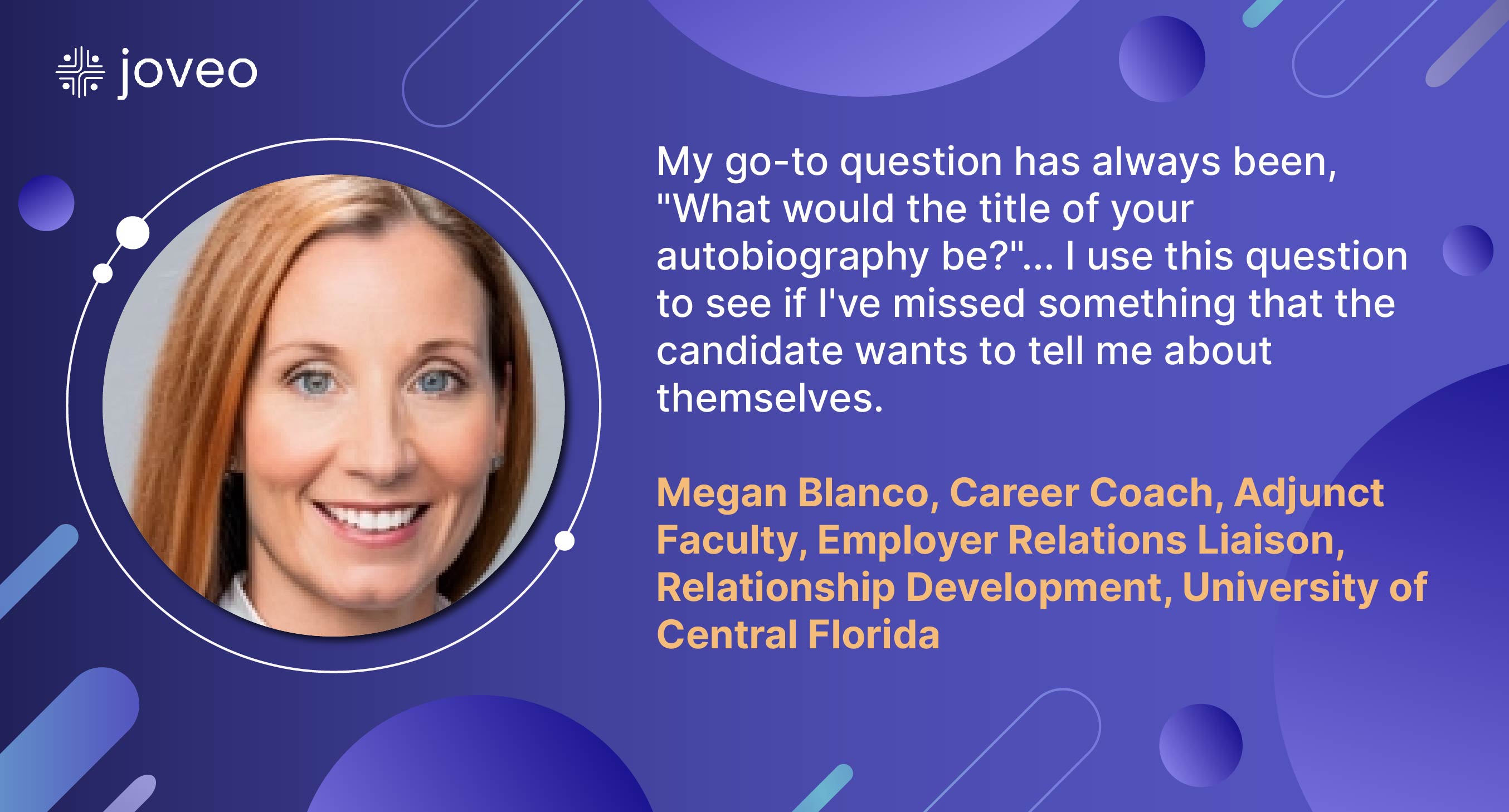
Following-Up to Past-Oriented Question
Past-oriented questions are notorious for candidates simply making up positive-sounding scenarios. Often, these are thoroughly rehearsed and require little quick thinking on their part.
After asking a past-oriented question, something like, “Tell me about a time you solved a complex problem early in your career,” I then follow up with, “Given your personal and professional development since then, how would you act differently now?”
Now, we both know that they probably made up their initial scenario and likely thought of the best possible conclusion already. However, if they genuinely did solve this problem early in their career, they should have no trouble at all suggesting better alternatives, given their greater experience and expertise.
This question often makes candidates squirm and either catches out unoriginal liars or tests the mettle of quick-thinking candidates, giving them the opportunity to think fast on the spot.
Ben Schwencke, Business Psychologist, Test Partnership
Presenting an Unexpected Scenario Challenge
In interviews, my go-to question to assess an applicant’s nimbleness on their feet is the “Unexpected Scenario Challenge.” I present the candidate with a unique and challenging hypothetical situation related to the position for which they are applying. This scenario typically involves a sudden change or crisis that requires quick thinking and adaptability.
I specifically focus on testing their problem-solving abilities, creativity, and composure under pressure. This question helps me gauge how well the candidate can think on their feet, whether they can approach unexpected situations with agility, and if they can come up with innovative solutions in real time.
Candidates who excel at handling the Unexpected Scenario Challenge often show the ability to handle dynamic work environments and are more likely to thrive in fast-paced, ever-changing roles.
Julia Kelly, Managing Partner, Rigits
Questioning Adaptability to Unexpected Changes
As someone experienced in the recruiting field, it’s crucial to have applicants that are nimble on their feet. This implies they are quick thinkers, innovators, and problem solvers. A simple yet revealing question to assess this is: “Tell me about a time when you swiftly adapted to unexpected changes or crises at work. How did you handle it, and what was the outcome?”
This question allows candidates to show their problem-solving skills, adaptability, and resilience. The focus isn’t on a perfect outcome; what’s important is how they embraced the challenge, made quick decisions, and learned from the experience.
On our recruitment platform for four-day work week firms prioritizing employee well-being, this question is a game-changer. It aids in identifying dynamic individuals who thrive in a high-pressure yet balanced environment, making our platform a hub for top-notch talent. Implement this question in your next interview and prepare to be amazed by the insights it uncovers!
Phil McParlane, CEO, 4dayweek.io
Handling Situations Without Leadership
I’ve always been a fan of asking, “How would you handle a situation where the person in charge is not available?” This question tests the applicant’s ability to think on their feet and come up with solutions when they’re thrown off their game. It also shows that the applicant has a history of working with people who are unavailable or otherwise not there for them—which is an important skill for anyone to have!
Jaanus Põder, Founder and CEO, Envoice
Asking About a Desired Superpower
As a hiring manager for a content writing department, it’s important to throw job candidates a left-field interview question. My favorite is, “If you could have one superpower, what would it be?”
This might seem like an inane icebreaker, but it’s useful for measuring a candidate’s creativity and reasoning skills. Whatever answer the candidate gives, a counterargument is made to see whether they stand their ground or backpedal.
For example, if a candidate said their preferred superpower was invisibility, they might be asked if that means that they struggle in leadership positions.
Unorthodox interview questions still need to apply to the job. A content job candidate wouldn’t be asked to sell a pen, as that question is a better test of sales skills. Rather than just seeking shock factor, the personal skills needed most from the hire and what questions can test those qualities are considered.
Sebastian Morgan, Senior Content Specialist, CV Genius
Surprising with a Lottery Winning Scenario
In job interviews, I really like to ask, “If you just won the $10 million lottery, what would you do with the money?” This question helps me see how quickly the candidate can think. It also shows what they truly care about. I’m not just listening for what they say.
I also pay attention to how they say it. This can tell me a lot about their drive, their dreams, and what they value most in life. This isn’t about right or wrong answers. It’s more about seeing how they react to a surprise question. Plus, it’s always interesting to hear the different responses!
Martin Potocki, CEO, Jobera
What comes before interviewing candidates, armed with interesting new questions? Well, getting your jobs out into the world and sifting through applications, of course! And, despite your best efforts, there’s always a possibility of receiving applications from individuals who apply indiscriminately to job listings, which makes getting to the interview bit of the process that much harder.
Joveo’s programmatic solution, MOJO Pro, is here to revolutionize your recruitment process. With the power of our AI-driven approach and campaign automation, you can spend with precision on sources that deliver. Get your job ads in front of the right people – at the right place and time, for the right price!
What does that mean?
Well, our clients see 33%+ more great-fit candidates, spend 25%+ less on every application, and track their performance across all sources – job sites, search engines, or social channels – with MOJO Pro. Discover the power of our game-changing, end-to-end talent-sourcing platform.
See us in action to boost your company’s productivity. Follow us on Twitter and LinkedIn for more hiring insights!
